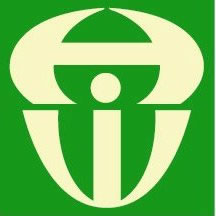IEA-Kenya Ranks Among Top 50 Think Tanks On The Continent

Category: General
By: IEA Kenya,
The Institute of Economic Affairs (IEA-Kenya) has been placed in the 27th Position among the Top Think tanks in Africa for the year 2012. This annual ranking by University of Pennsylvania in the Go to Think Tank report is one of the most recognized attempts at comparing and ranking think tanks.
More Blogs
Important dates and Citizen Concerns During Budget Planning Phase for Fiscal Year 2025/2026
The Budget formulation and preparation process in Kenya is guided by a budget calendar which indicates the timelines for key activities issued in accordance with Section 36 of the Public Finance Management Act, 2012.These provide guidelines on the procedures for preparing the subsequent financial year and the Medium-Term budget forecasts. The Launch of the budget […]
Adjusted IMF Program Demands on Kenya
In the IMF WEO published yesterday, the IMF elaborated its macroeconomic framework for the ongoing IMF program. The numbers clarify how the program, derailed by the mid-year Gen-Z protests, has been adjusted to make possible the Board meeting for the combined 7th and 8th Reviews scheduled for October 30. The adjustments, unfortunately, again raise profound […]
What does the Nobel Prize in Economics 2024 mean for Constitution Implementation in Kenya?
Daron Acemoglu, Simon Johnson, and James A. Robinson won the 2024 Nobel Prize in Economics for their research on how a country’s institutions significantly impact its long-term economic success.[1] Their work emphasizes that it’s not just about a nation’s resources or technological advancements but rather the “rules of the game” that truly matter. Countries with […]
Highlights of The World Trade Report 2024.
The World Trade Report 2024 was launched at the start of the WTO Public Forum 2024 in Geneva titled “Trade and Inclusiveness: How to Make Trade Work for All”[1], and this blog will seek to highlight some of the most profound insights. The report delves into the crucial relationship between international trade and inclusive economic […]
The Grounds to Repeal the Price Control Act of 2011
The Price Control Act of 2011, with its imposition of price ceilings on essential goods, represents a significant intervention in the natural forces of supply and demand that govern a free market. The Act empowers the Minister to control the prices of essential goods, preventing them from becoming unaffordable. The Act outlines a specific mechanism […]
IEA-Kenya Ranks Among Top 50 Think Tanks On The Continent
| Post date: Thu, Jan 24, 2013 |
| Category: General |
| By: IEA Kenya, |
The Institute of Economic Affairs (IEA-Kenya) has been placed in the 27th Position among the Top Think tanks in Africa for the year 2012. This annual ranking by University of Pennsylvania in the Go to Think Tank report is one of the most recognized attempts at comparing and ranking think tanks.

More Blogs
Important dates and Citizen Concerns During Budget Planning Phase for Fiscal Year 2025/2026
The Budget formulation and preparation process in Kenya is guided by a budget calendar which indicates the timelines for key activities issued in accordance with Section 36 of the Public Finance Management Act, 2012.These provide guidelines on the procedures for preparing the subsequent financial year and the Medium-Term budget forecasts. The Launch of the budget […]
Adjusted IMF Program Demands on Kenya
In the IMF WEO published yesterday, the IMF elaborated its macroeconomic framework for the ongoing IMF program. The numbers clarify how the program, derailed by the mid-year Gen-Z protests, has been adjusted to make possible the Board meeting for the combined 7th and 8th Reviews scheduled for October 30. The adjustments, unfortunately, again raise profound […]
What does the Nobel Prize in Economics 2024 mean for Constitution Implementation in Kenya?
Daron Acemoglu, Simon Johnson, and James A. Robinson won the 2024 Nobel Prize in Economics for their research on how a country’s institutions significantly impact its long-term economic success.[1] Their work emphasizes that it’s not just about a nation’s resources or technological advancements but rather the “rules of the game” that truly matter. Countries with […]
Highlights of The World Trade Report 2024.
The World Trade Report 2024 was launched at the start of the WTO Public Forum 2024 in Geneva titled “Trade and Inclusiveness: How to Make Trade Work for All”[1], and this blog will seek to highlight some of the most profound insights. The report delves into the crucial relationship between international trade and inclusive economic […]
The Grounds to Repeal the Price Control Act of 2011
The Price Control Act of 2011, with its imposition of price ceilings on essential goods, represents a significant intervention in the natural forces of supply and demand that govern a free market. The Act empowers the Minister to control the prices of essential goods, preventing them from becoming unaffordable. The Act outlines a specific mechanism […]
